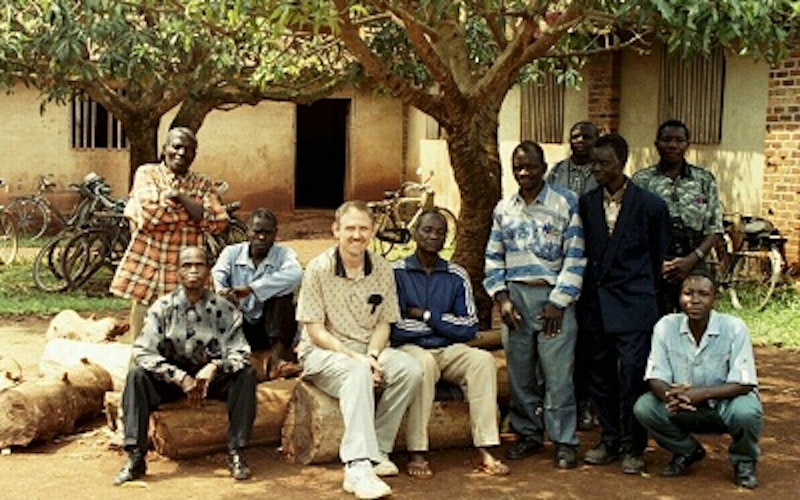
Culture At Large
A way to deal with witchcraft
Editor's note: With reports that accusations of witchcraft are on the rise in some African countries, we asked Timothy Stabell, a professor at Briercrest College and Seminary with experience in the mission field, to share what certain Christian leaders are facing overseas.
One aspect of my ministry with church leaders in the Democratic Republic of Congo has been leading discussions on the topic of witchcraft. My goal has been to work toward mutually agreed-upon principles of biblical and pastoral theology for dealing with these matters.
During one lively debate, a deacon told about a woman and her daughter who had that very day publicly confessed to being witches. They were caught by a man who had wakened during the night to the sound of pigs rooting around his tent (he was living in a refugee camp for people who had fled horrific fighting among different militia groups seeking to control the export of gold in the area). He had gone out to drive the pigs away and had struck at the younger pig with his machete. The pigs immediately “shape-shifted” back to their human form and the young girl now had a wound on her leg at the same spot where he had hit the pig.
How should church leaders approach accounts like this one? There are several factors to keep in mind.
Many non-Western societies regularly attribute misfortune of various kinds to witches. Westerners tend to blame natural causes (chance, germs, political conflict, psychological problems, etc.). These societies, however, often blame allegedly evil human actors who use their presumed mystical powers to harm others out of spite, jealousy or covetousness.
The presumption that misfortune is caused by witches can lead to a social climate of suspicion, slanderous gossip, bitter accusation and violence against accused witches. When questioned, the deacon who reported these events indicated that the women had “confessed” only after having been severely beaten. Can testimony obtained through this kind of torture be reliable?
Exposure to globalization does not seem to weaken the tendency to blame witches for misfortune. In fact, it often reinforces such patterns, particularly when contact with the globalizing forces leads to exploitation and violence. The gold mining fueling the conflict mentioned earlier, causing a level of suffering that cries for explanation in terms of witchcraft, is directly tied to the global demand for cell phones, computers and gaming stations, which all require gold and other minerals mined in the DRC.
Christians have often tended to “demonize” witches: They have maintained traditional beliefs about witches, explaining their alleged powers by arguing that they are enabled by demons. This mixes traditional and biblical categories in a manner that amounts to syncretism and distorts the biblical teaching about demons.
There are better ways of dealing with these issues. Demons do have power and some individuals may seek such power for themselves. But demons belong to the kingdom of Satan, the great deceiver. I would suggest that Satan has used the cultural stronghold of belief in witchcraft, reinforced by ungodly gossip and the malicious desire to blame others for misfortune, to keep people in bondage to fear and to the kind of social discord produced by suspicion, rumor and false accusations.
Demonic involvement in witchcraft is primarily one of deception rather than outright empowerment of witches. Even if evil spirits may at times seem to empower certain people to do amazing things, their goal, as members of the kingdom of darkness, is to hold people in bondage to fear by encouraging them to believe things about others around them that are not true. Gossip and accusation of the kind I have referred to above can do immense damage to the social standing and well being of innocent people. Our sinful tendency is to pin the blame on innocent others. Cultural conventions such as a belief in witchcraft only make this more possible.
(Photo courtesy of Timothy Stabell, sitting fourth from left.)
Topics: Culture At Large, Theology & The Church, Faith, Evangelism, News & Politics, World